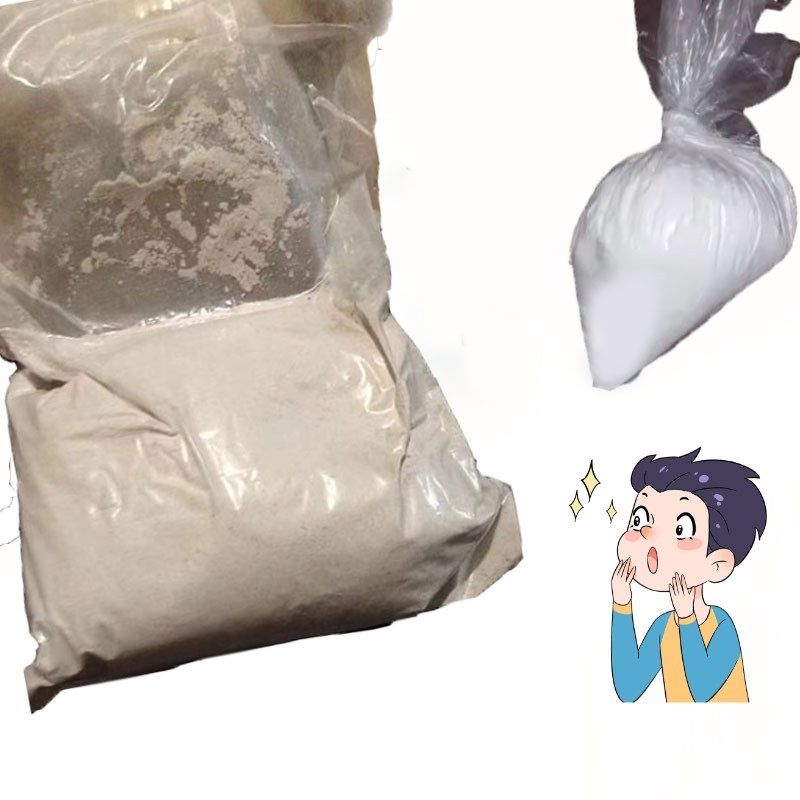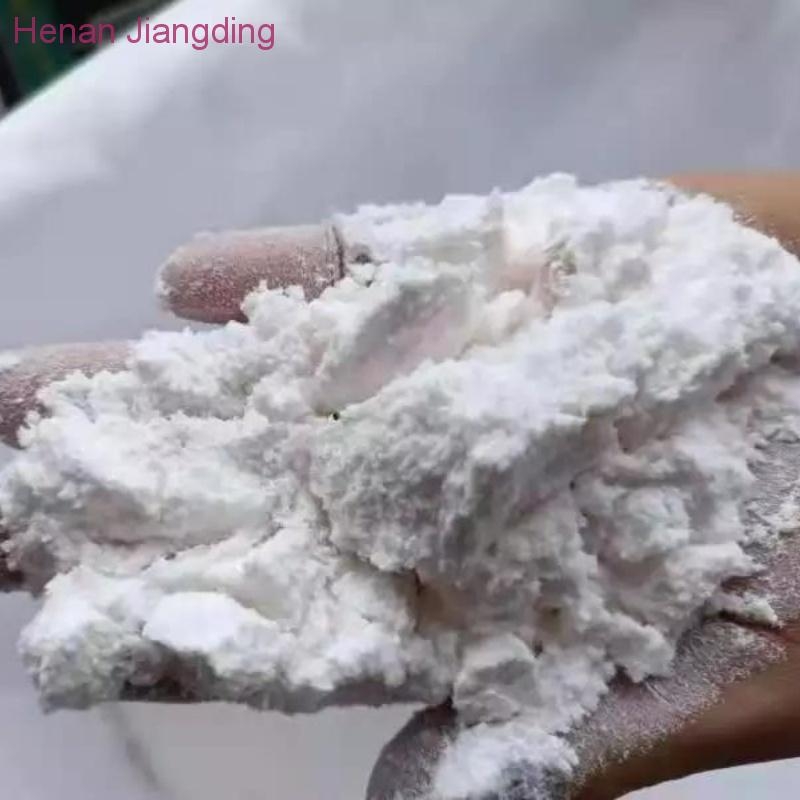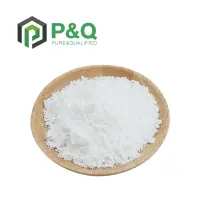-
Categories
-
Pharmaceutical Intermediates
-
Active Pharmaceutical Ingredients
-
Food Additives
- Industrial Coatings
- Agrochemicals
- Dyes and Pigments
- Surfactant
- Flavors and Fragrances
- Chemical Reagents
- Catalyst and Auxiliary
- Natural Products
- Inorganic Chemistry
-
Organic Chemistry
-
Biochemical Engineering
- Analytical Chemistry
- Cosmetic Ingredient
-
Pharmaceutical Intermediates
Promotion
ECHEMI Mall
Wholesale
Weekly Price
Exhibition
News
-
Trade Service
!--webeditor: page title" -- IMmunic Therapeutics is a clinical biopharmaceutical company focused on developing best-in-class oral therapies for chronic inflammation and autoimmune diseases.
recently, the company announced at the 8th ACTRIMS-ECTRIMS Joint Conference MSVirtual2020 that it has a complete non-blind clinical dataset for its pilot asset IMU-838 therapeutic recurrence-remission multiple sclerosis (RRMS) Phase II EMPhASIS trial.
positive top line results released by the U.S. Government in August this year showed that the study reached all major and critical secondary endpoints, confirming that the IMU-838 treatment of RRMS has significant efficacy and good safety and tolerance.
the data released at the meeting expanded and further confirmed the previously published positive top line results.
non-blind subgroup analysis showed consistent MRI lesions inhibition in different populations, and the time process of MRI lesions inhibition showed a decrease in lesions in the first scan after the baseline was performed in week 6, which confirmed that IMU-838 was able to quickly reach stable therapeutic levels.
addition, significantly lower levels of serum nerve wire light chain (sNfL, biomarkers of axon damage) were observed in two treatment groups of IMU-838, but not in the placebo group.
these results support the potential of IMU-838 to provide rRMS patients with a new, convenient, every-time, oral first-line treatment. Dr. Robert J. Fox, a neurologist at the Meron Multiple Sclerosis Center and the reporting officer of the
study, said, "The results of the Phase II study on IMU-838 in RRMS patients are encouraging because the data show that the trial has reached a major and critical secondary endpoint and is highly statistically significant.
importantly, the IMU-838 appears to be safe and well-to-use, with a strong ability to suppress active MRI lesions, which is more beneficial than other first-line and oral drugs in the RRMS field.
"IMU-838 is an oral next-generation selective immunomodulation agent that inhibits intracellular metabolism of active immune cells by blocking the hydrochloric acid dehydrogenase (DHODH).
IMU-838 act on active T- and B-cells, while keeping other immune cells largely unaffected and keeping the immune system functioning, such as fighting infection.
previous trials, IMU-838 did not increase infection rates compared to placebos.
addition, DHODH inhibitors, such as IMU-838, are known to have host-based antiviral effects that are independent of specific viral proteins and their structure.
, DHODH inhibition can be widely used in a variety of viruses.
in 2017, two Phase I clinical trials of IMU-828 were successful.
In addition to developing IMU-838 for the treatment of RRMS patients, Immunic is conducting a number of Phase II clinical trials to evaluate IMU-838's treatment of new coronavirus pneumonia (COVID-19), primary sclerotic bile ductitis (PSC), ulcerative colitis (UC), which is expected to be released in the coming months.
IMU-838 Structured and DHODH Inhibition (click on the image for graph) EMPhASIS is an international, multi-center, double-blind, placebo-controlled, randomized, parallel group study designed to assess the efficacy and safety of IMU-838 in treating RRMS patients.
of 210 patients in 36 centres in four European countries, 209 received at least one dose of IMU-838 or placebo (placebo group n=69; 30mg IMU-838 group n=71; 45mg IMU-838 group n=69, one daily oral treatment) and 197 patients completed 24 weeks of blind treatment.
, all patients in the group must show disease activity based on clinical evidence of recurrence and other magnetic resonance imaging (MRI) standards.
major endpoints and key secondary endpoints were: the cumulative number of combined independent activity (CUA) magnetic resonance imaging (MRI) lesions in the IMU-838 45mg group and the 30mg group during the 24-week blind treatment.
MRI at baseline check-ups and at 6, 12, 18, and 24 weeks, and are centrally evaluated by an independent blind-law MRI reader.
study included an optional extended treatment period of up to 9.5 years to assess the long-term safety and toerability of IMU-838.
As mentioned earlier, the study reached its main endpoint: within 24 weeks of treatment, the cumulative number of combined independent active magnetic resonance imaging (CUA-MRI) lesions in patients in the 45 mg dose group decreased significantly by 62% compared to the placebo group.
the study also reached a critical secondary endpoint: a significant 70 percent reduction in the cumulative number of CUA-MRI lesions in patients in the 30 mg dose group compared to the placebo group.
all other secondary endpoints, including secondary endpoints based on other MRI parameters and clinical endpoints such as relapse events, showed significant signaling and numerical benefits in the 2 dose IMU-838 treatment groups compared to the placebo group.
A subgroup analysis of the complete non-blind data set showed that MRI lesions inhibited in different populations were consistent, including treatment effects independent of pre-study treatment (previously untreated or treated), number of pre-study relapses, or countries in the group.
addition, the time process of MRI lesions inhibition indicates that at the first evaluation point in the trial (week 6), there has been a decrease in lesions, consistent with the previous IMU-838 rapidly reaching stable levels of therapeutic drugs.
MRI effects other than secondary endpoints, such as relapse activity or changes in the Extended Disability Status Scale (EDSS), a method of measuring a patient's nervous state, showed that the IMU-838 treatment group had an advantage over placebo in terms of first recurrence time and annualized recurrence rate, although the duration of the study was too short to provide a formal assessment.
suggests that MRI activity in the IMU-838 treatment group may translate into activity associated with clinical recurrence endpoints in future studies with longer follow-up times, which is also supported by third-party meta-analysis in other RRMS trials.
!--/ewebeditor:page--!--ewebeditor:page-title"--in week 24, IMU-838 There was a significant decrease in serum nerve silk in the treatment group (-17.0% in the 30mg group and -20.5% in the 45mg group), while patients in the placebo group increased slightly by 6.5% at the same time.
reduction in serum nerve wire light chains (sNfL, a biomarker of axon damage) has been shown to be associated with neurodegenerative degeneration and neuro-inflammatory processes, and over the past few years it has become one of MS's most important serum biomarkers.
consistent with previously released top-line results, and the complete non-blind data set confirmed that the IMU-838 was generally well-to-do and similar in safety to a placebo.
the most common adverse events (TEAEs) during treatment are headache and nasopharyngitis, which occurs more than 5% in patients treated with IMU-838 and placebo.
adverse events (AEs) were generally mild, with only one case of severe adverse events (placebo group).
in this study, only 3 patients had severe adverse events, one in the placebo group (cervical cancer) and two in the IMU-838 treatment group (open fractures, ureter stones/renal water build-up).
no hepatotoxicity signals in the AE report, as confirmed by a detailed analysis that showed no general effects on liver enzymes and bililine.
IMU-838 had no significant effect on hematological indicators, with no neutral granulocyte reduction, white blood cell reduction or lymphocyte reduction.
study, each dose of IMU-838 showed no general effect on serum uric acid levels or an increase in the rate of urinary urine.
24 weeks of blind treatment, the withdrawal rate in the IMU-838 treatment group was only 4.3 percent, compared with 7.2 percent in the placebo group.
Andreas Muehler, Immunic's chief medical officer, said: "The complete research data greatly enhances our confidence in the potential of IMU-838 as a new oral treatment option for RRMS.
in particular, the results show that two doses of IMU-838 are equally effective in all efficacy-related measurements and biomarkers, and that there are no safety issues with those two doses, which will be an important differentiator.
from the full dose analysis of this trial, we believe that 30 mg/day is the most suitable dose for extended treatment for patients who are still in trial.
() Origin: Immunic, Inc. Publishes Full Full Unblind Clinical Data From Phase 2 EMPhASIS Trial of IMU-838 in Patients With Relapsing-Remitting Multiple Sclerosis and Announces Poster Presentation at the MSVirtual2020 !--/ewebeditor:page--.







